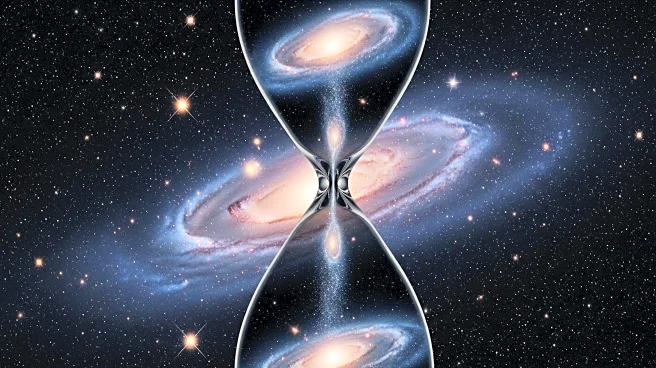What is the story about?
What's Happening?
A recent study published in the Journal of Cosmology and Astroparticle Physics suggests that the universe will end much sooner than previously calculated. The new timeframe is 10 to the power of 78 years, significantly less than the earlier estimate of 10 to the power of 1,100 years. Researchers applied the concept of Hawking radiation, traditionally associated with black holes, to other celestial objects like white dwarfs and neutron stars. This radiation causes these objects to evaporate over time, leading to the eventual demise of the universe.
Why It's Important?
The study provides new insights into the lifespan of the universe, challenging previous assumptions. Understanding the universe's end has implications for cosmology and theoretical physics, potentially influencing future research directions. While the timeframe is still far beyond human existence, it raises questions about the long-term fate of celestial bodies and the universe itself. The findings could impact philosophical and scientific discussions about the nature of existence and the universe's ultimate destiny.
Beyond the Headlines
The study highlights the adaptability of Hawking radiation beyond black holes, suggesting that less dense objects can also emit this radiation. This expands the understanding of cosmic phenomena and the processes governing the universe's evolution. The research underscores the interconnectedness of celestial objects and the role of density in determining their lifespan. It also prompts further exploration into the mechanisms of Hawking radiation and its broader applications in astrophysics.

















